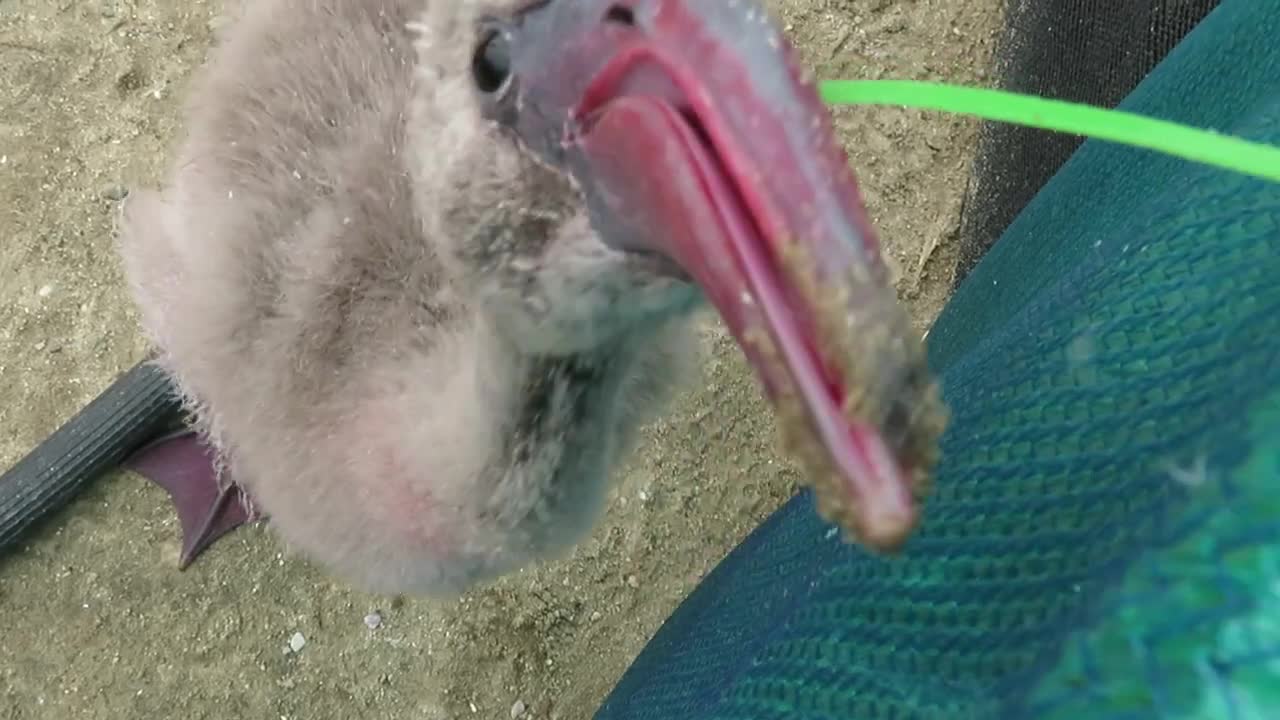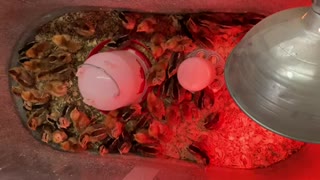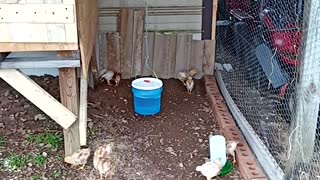Premium Only Content

Orphaned flamingo chicks outside
Not pets!
Over 2,000 flamingo chicks were abandoned, when their parents fled to save themselves from the drought, as the dam dried up. The chicks got sent to bird rehabilitation centers, but they were extremely young and many were very weak and dehydrated, and didn't even survive the trip. The birds received round-the-clock care, and the surviving chicks started growing stronger. This video was shot over a month later, and the remaining flamingos are now out of the woods
The Lesser Flamingo (Phoeniconaias minor) is the smallest species of flamingo, and occurs in sub-Saharan Africa and from the Arabian Peninsula to Pakistan and India. They make extensive movements in response to environmental conditions, and are partially migratory.
The Lesser Flamingo is one of the only two species of Old World Flamingos, along with the Greater Flamingo (Phoenicopterus roseus). Both species used to belong to the same genus, Phoenicopterus, which they shared with the Chilean Flamingo (Phoenicopterus chilensis), the American Flamingo (Phoenicopterus ruber), the Andean flamingo (Phoenicopterus andinus), and the James's flamingo (Phoenicopterus jamesi). However, in 2014, a publication reclassified the six species into three genera: the Lesser Flamingo was moved to the Phoeniconaias genus, of which it is the only member; and the Andean and James's Flamingos are now in the Phoenicoparrus genus, as Phoenicoparrus andinus, and Phoenicoparrus jamesi, respectively.
Lesser Flamingos have a highly specialized diet, feeding almost exclusively on microscopic blue-green algae, and benthic diatoms, although they can also eat small aquatic invertebrates. In spite of its blue-green color, the algae contain beta carotene, a reddish-orange pigment that gives flamingos their pink coloration.
-
 0:06
0:06
ShaneRumbles
3 years agoChicks Chicks Chicks
89 -
 1:23
1:23
Binny2020
4 years agoChicks move to the outside run
15 -
 10:22
10:22
threestrikesurout
3 years agoNonograms - Flamingo
55 -
 1:06
1:06
cmsherm34
3 years agoBuster outside
18 -
 0:13
0:13
wildlittlefan
3 years agoFlamingo live
49 -
 3:40:55
3:40:55
MyronGainesX
16 hours ago $14.36 earnedFormer Fed Explains Gabby Petito's Murder
60.9K20 -
 2:18:05
2:18:05
Nerdrotic
7 hours ago $7.99 earnedInvestigations into the Unknown with Micah Hanks | Forbidden Frontier #093
63.2K16 -
 18:54
18:54
The Rubin Report
11 hours agoHow One Woman Outsmarted Pornhub & Exposed Its Dark Secrets | Laila Mickelwait
136K97 -
 LIVE
LIVE
Major League Fishing
5 days agoLIVE! - Bass Pro Tour: Stage 3 - Day 4
693 watching -
 1:05:28
1:05:28
Sports Wars
14 hours agoLebron GOES OFF Over Bronny Hate, Pereira LOSES Belt To Ankalaev At UFC 313, Xavier Worthy Arrested
97.4K11